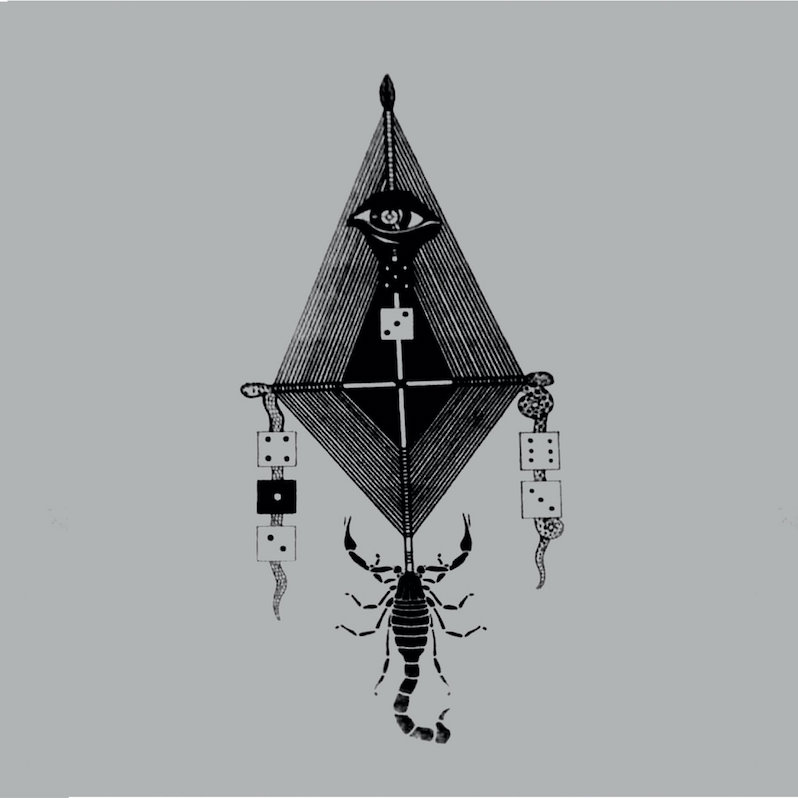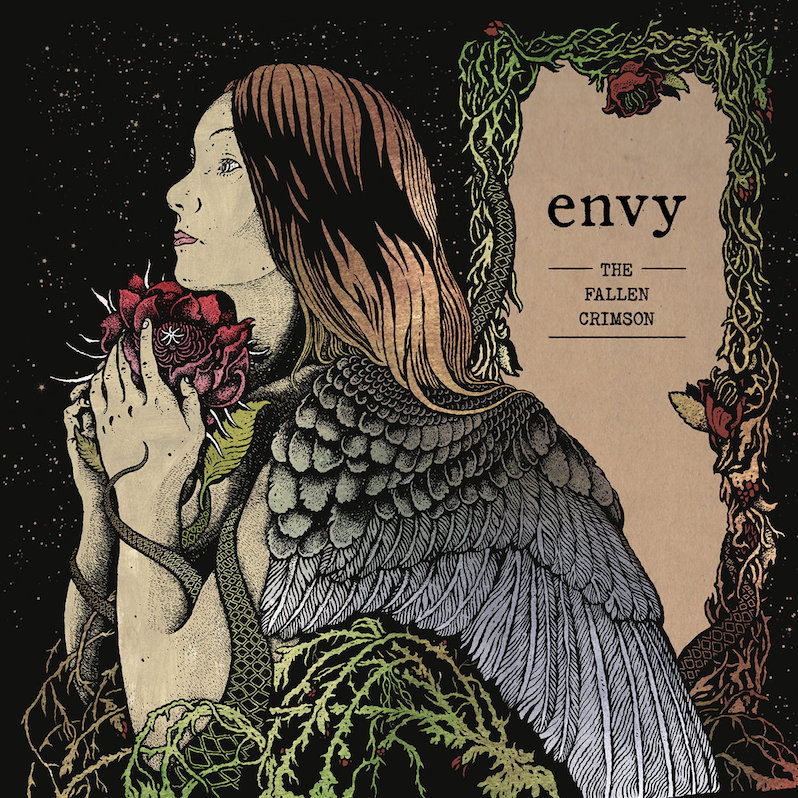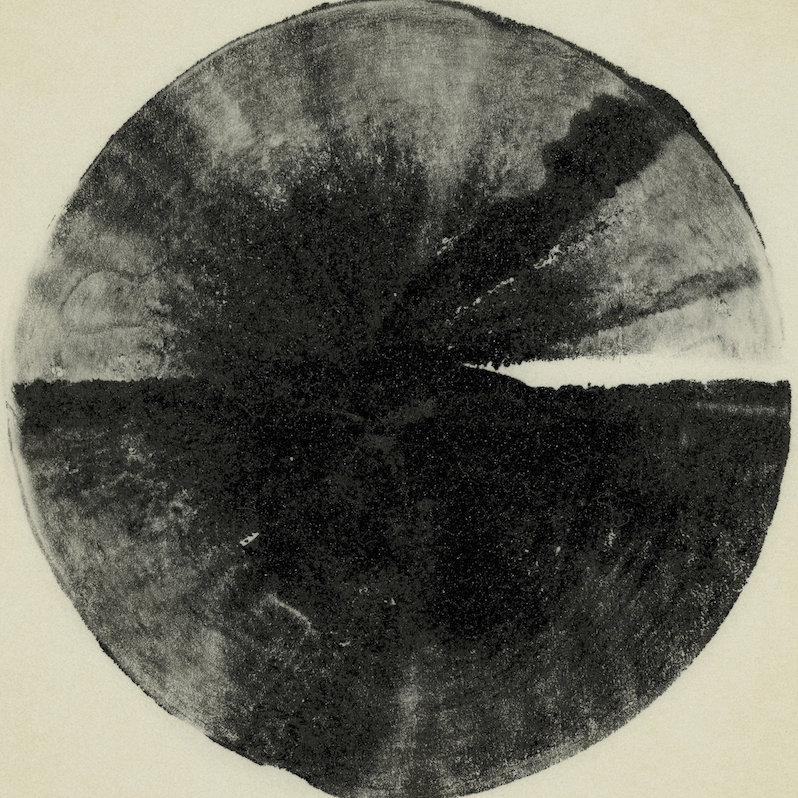Celeste : Assassine(s)

There’s no way to discuss this Celeste record without making a confession: Recently, the paper-thin shell around my insurmountable COVID grief was sliced open. It was an innocuous thing, Meat Loaf’s death, a beloved and iconic performer who also happened to be a raging anti-vaxxer in the two years preceding his death. There is, objectively, no reason why this should infuriate me. Yes, his position was one from a calculated position of privilege and in keeping with his increasingly conservative politics, unsurprising given he was an aging white guy with a lot of money. But it would be exceedingly shocking if anyone forewent the vaccine because of Meat Loaf, rendering his feelings about as broadly important as a half-drunk construction worker who may or may not be someone I know in real life. Nor, should I add, is my COVID grief unique in any way. Any one of us can look at the numbers, nearly 100 million total cases and nearing 1 million total deaths and that’s just in America alone, and something like the stench of death overtakes you. Your chest locks up, like something between the bodily sensation of a breakup and the oncoming rush of vomit. One million dead in two years.
So it is in this headspace I’ve been nursing recently, attempting to get myself back to the blissful numbness we’ve all learned to take on in the midst of this semi-genocidal bullshit, that I encounter this record. I knew the band’s work before this record, knew on paper that they were a post-metal band that drew equally from the worlds of post-hardcore and black metal, like if Deafheaven or Bosse-de-Nage fused with Cult of Luna, but French. I also knew in my occasionally fragile emotional states that this type of music can, at its best, cut me to the core; Isis was my favorite band for years and groups like Sumac, Cult of Luna and Neurosis I largely avoid save for special occasions precisely because of how thoroughly they can fuck up my heart. Still, I remember my feelings about this band being largely those of passive interest, enjoying the work but not necessarily being so destroyed by the proceedings to mark them much beyond that.
It was a pleasant surprise, then, when the newfound digs at Nuclear Blast seemed to furnish Celeste with a studio, producer and engineer fit to make them sound massive. The first few seconds of this record are all you need to prove it but that sense of sonic scope and fullness pervades the entire 40 minute record; Assassine(s) sounds like a million bucks, blowing out your speakers not like a punk band blasting away in the corner of a basement show but instead like an apocalypse rendered in THX surround sound. They wield this newfound sense of space without crowding it. Guitars may lay down tremolo picked riffs, but they cascade more like early 2000s post-rock than the tense and tenebrous brittle riffs of second-wave black metal. Bass lays down a thickening cloud of bottom end that synthesizers and guitars texture with melody, but the real star, and the real proof that they are primarily a post-metal band, is in their drummer. These beats feels constructed as if by the hybrid of a doom player and a post-hardcore player, leaning back largely in half-time to let the tension sit unresolved and souring in your gut. The snare slices through like a punch to your chest, transforming these riffs which in a different mix might have been feral into the sound of tears and terror.
It is so curious, in ways, to mark how Celeste and Krallice, two nominally black metal bands who released albums at the same time, assemble the same elements to differing ends. Where Krallice is a heady and abstract affair, feeling like reading the exploration journal of a transdimensional consciousness streaking tangentially through the outer rim of our universe, Assassine(s) feels like a bodily cry. It’s hard not to do the typical half-time full-body headbang to this material, commanding in its rhythm and punctuation as it is, but the heart of the music is clearly within what feels like a tremendous outpouring of grief. The black metal vocals in this terrain, gasped and spat and gargled, feel closer to the first wave of emo bands, shifting the inarticulate howl of hardcore bands into a tear-stained shriek. There is force behind them, the same kind of power that commands groups like Immortal or Enslaved at their most phlegm-soaked, but against these musical backings it comes out as a cry.
The combination of elements feels almost like a hunched body. Guitars curve like the spine, streak like tears; the bass sours like the roiling of your intestines under great duress; the snare and bass punches like fists slamming into your desk in indignant pain while the vocals are a wordless howl. The translation of sound to embodiment and body-image here is a profound and affecting thing, one admittedly heightened due to my aforementioned increased awareness of my own COVID grief. But I don’t think these two elements are wholly disconnected, even if perhaps they were not intended by the band. Music emerges, of course, not just from the intent and interiority of the artist but also into the exterior, social and psychological space of the world and its listeners. We cannot pretend or seek to excavate the mounting and useless plague dead from the observing “I” that witnesses this record as much as people in the ’60s could excise the shadow of the Vietnam war and the long stains of the Korean war and WWII from their minds as psychedelic rock pointed toward an already fatally-poisoned utopia dying on the vine. This record felt like a fist gripping my heart, black blood seeping through the fingers. I’ve been largely unable to cry or even rise myself to anger about all of this for so, so long now, but somewhere between pressing play and the end of my first run through the album, I felt those barriers breaking down again, a sensation that has been maintained with every play since. How could I pretend these two are separate?
This in turn strikes at what precisely music means, why music is important. Few of us are interested in the abstract object of art, devoid of time and culture and the self, notes suspended in dead air with no listener. Nor are we particularly moved, often, by the pure intentions of its creator, which often misalign with our experiential understanding of their work. Music begins to matter, reaches its Becoming, as it interweaves with our lives, only finds fruit upon nourishing itself on the soil of our psyche. I’ve heard from others who’ve listened to this album already that, to them, it’s a competent record not straying far from what the band had done already, an unremarkable but passable addition to their catalog. To those, I say: No other record by this band has reduced me to tears before. The reality of their sentiment, that this is not a radical reinvention for Celeste, holds true. But this only serves to underscore another truth about music, or art in general; it is less important to be radically new than to be mindful of the details, the small and subtle gestures which on close inspection may appear inconsequentially similar to one another but, in gestalt, are the difference between a song being a set of sounds or an emotional catalyst. That transformation is made half by craft and half by magic. On Assassine(s), Celeste has tapped into the magic.
Label: Nuclear Blast
Year: 2022
Similar Albums:
Langdon Hickman is listening to progressive rock and death metal. He currently resides in Virginia with his partner and their two pets.




